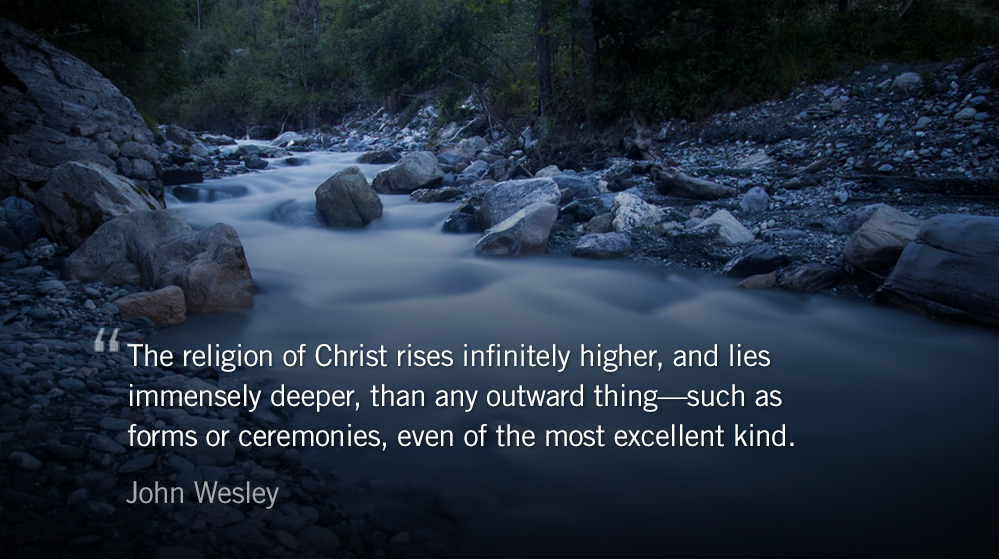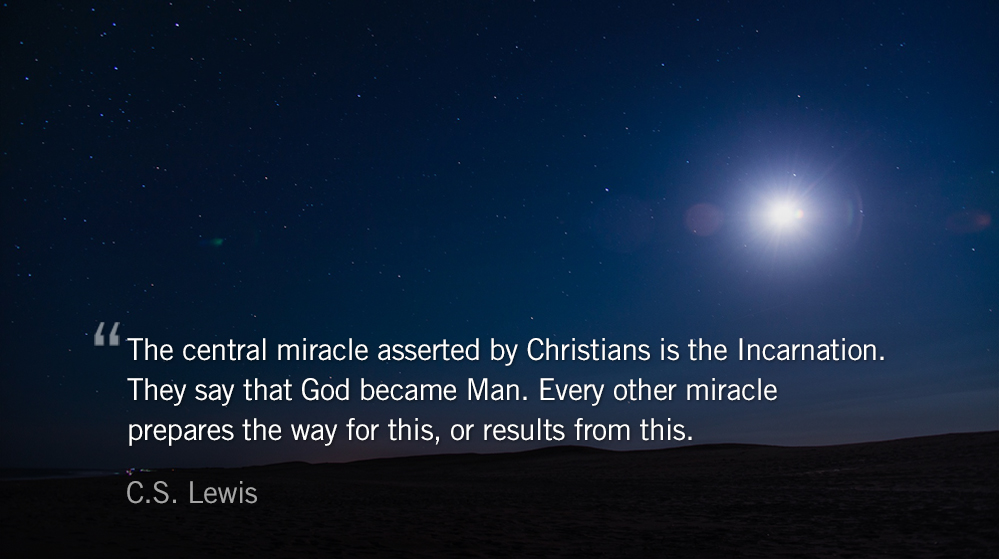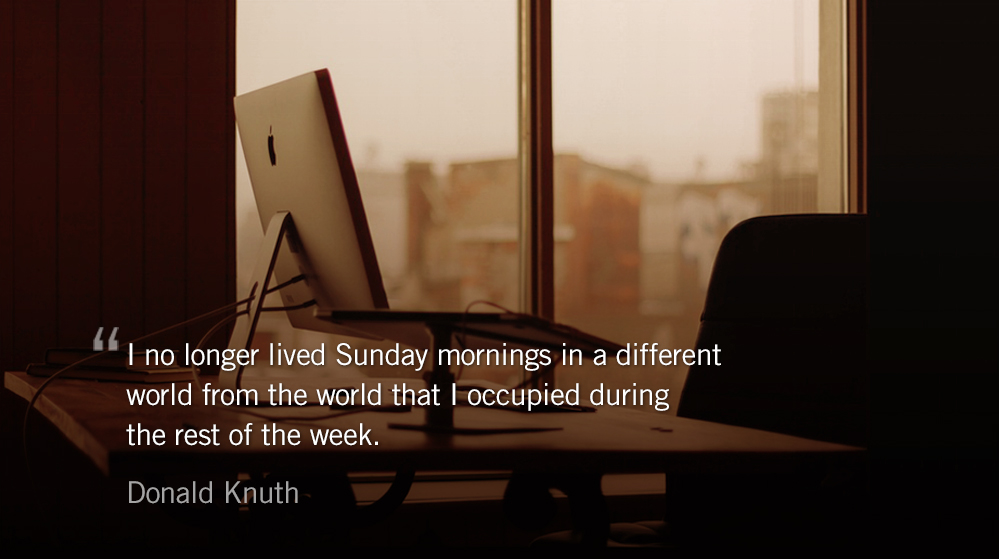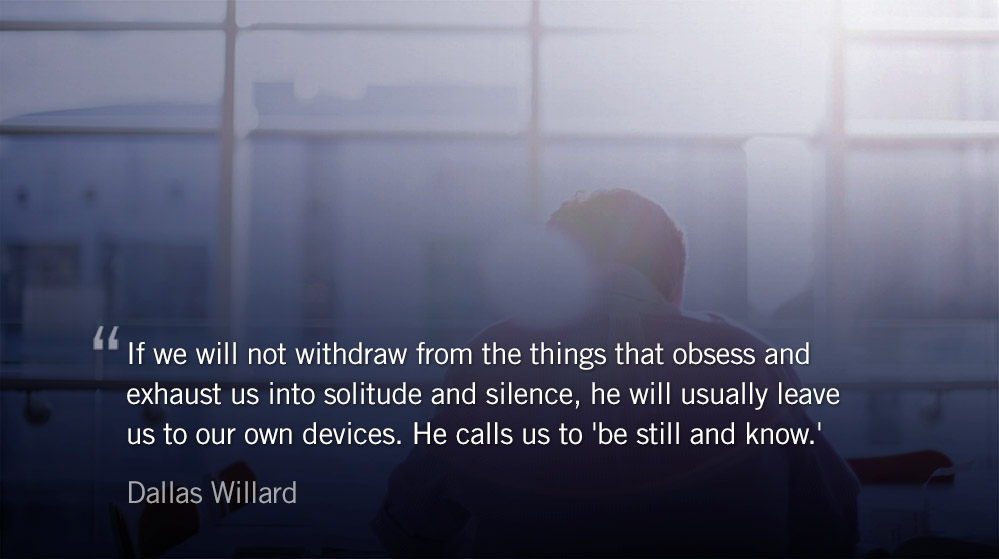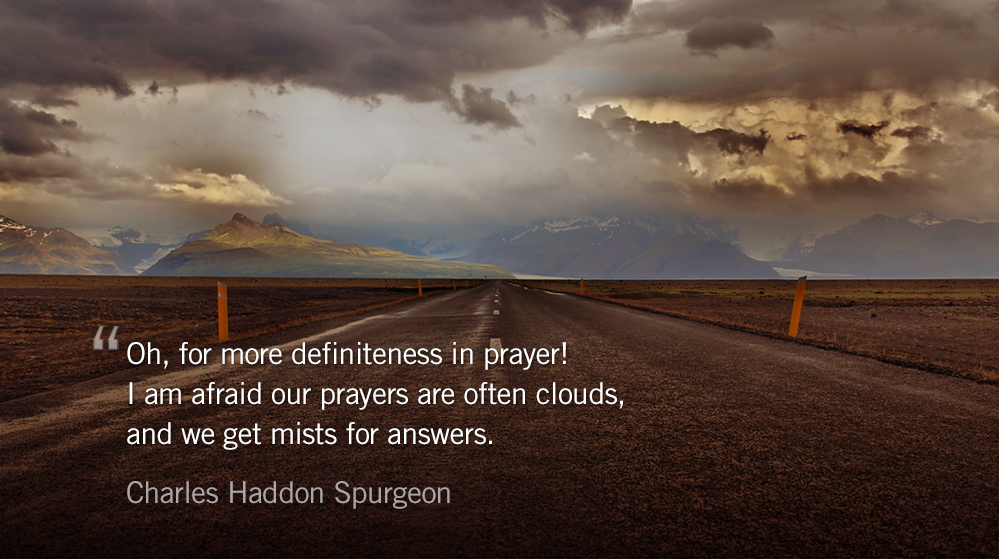By John Wesley
“They are all zealous for the law.” — Acts 21.20
Consider the nature of true religion, referred to by our Lord as, “the kingdom of God.” “The kingdom of God,” or true religion, “is not meat and drink.” (Rom 14.17) True religion does not consist in any ritual observances nor in any outward thing whatever.
The religion of Christ rises infinitely higher, and lies immensely deeper, than any outward thing—such as forms or ceremonies, even of the most excellent kind. These are good in their place; just so far as they are in fact subservient to true religion. Let no man dream that they have any intrinsic worth; or that religion cannot subsist without them. This were to make them an abomination to the Lord.
It is true, a man cannot have any religion who is guilty of vicious, immoral actions; or who does to others what he would not they should do to him. Yet may a man both abstain from outward evil, and do good, and still have no religion. Two persons may do the same outward work; suppose, feeding the hungry, or clothing the naked; and, in the meantime, one of these may be truly religious, and the other have no religion at all: For the one may act from the love of God, and the other from the love of praise.
Suppose perfect obedience could atone for the sins that are past, this would not profit uru one bit—for you art not able to perform it. You cannot. How will you change your life from evil to good? Indeed, it is impossible—unless your heart is changed first. So long as the tree remains evil, it cannot bring forth good fruit.
The substance of the gospel is this; “Jesus Christ came into the world to save sinners;” or, “God so loved the world that he gave his only-begotten Son, to the end we might not perish, but have everlasting life;” or, “He was bruised for our transgressions, he was wounded for our iniquities; the chastisement of our peace was upon him; and with his stripes we are healed.”
Believe this, and the kingdom of God is yours. By faith you attain the promise. “He pardoneth and absolveth all that truly repent, and unfeignedly believe his holy gospel.” As soon as ever God has spoken to your heart, “Be of good cheer, thy sins are forgiven thee,” his kingdom comes: You have “righteousness, and peace, and joy in the Holy Ghost.”
*Abridged and language updated from John Wesley’s 1872 sermon, The Way To The Kingdom.
Today’s Reading
Nehemiah 11 (Listen – 5:05)
Acts 21 (Listen – 5:55)

